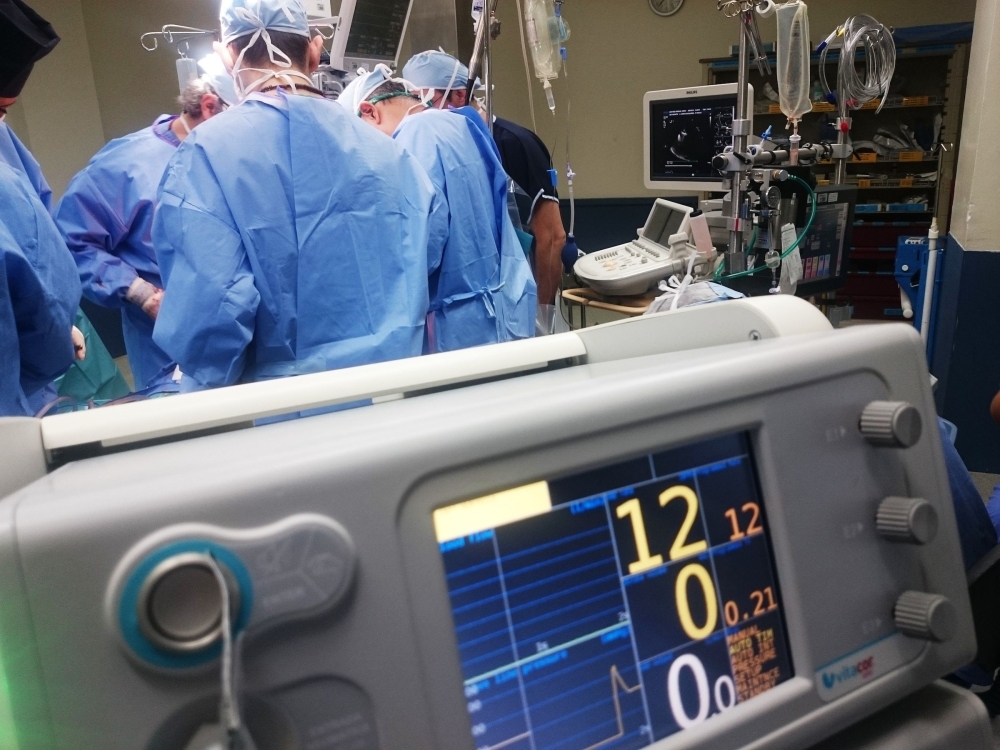Up to 33% co-payment for anaesthetists
A reduction of hospital benefits by medical funds for various procedures means that patients will have to pay between 25% and 33% out of their own pockets for anaesthetic services. This comes after members of the Anaesthesiologists Society of Namibia (ASN) adjusted their rates in response to the decision by medical funds to reduce hospital benefits.
Effective 1 January, these benefits were reduced by up to 33% over 12 months, with some of the funds implementing "a significant reduction and decrease in benefits," including hospital visits with health service providers.
The Namibian Association of Medical Aid Funds (Namaf) announced last year that the standard rates for 2023 will remain unchanged until at least the end of the first quarter of 2024 – and possibly longer.
However, contributions from members of medical funds have increased by up to 12% as of 1 January.
Financial pressure
According to Namaf, this is an attempt to bring normalcy to the financial standing and sustainability of medical funds in Namibia, whose reserves currently stand at 23.8% against the mandatory 25%.
Given the "unprecedented financial pressure" currently experienced by the financing industry for medical funds, Namaf stated in December that the decision was consequently made to freeze the increase of standard rates until the end of the first quarter in 2024. This will, among other things, give the Namibia Financial Institutions Supervisory Authority (Namfisa) time to make a decision on the requests from various medical funds for the increase of members' monthly premiums.
The Namibia Private Practitioners' Forum (NPPF) responded by stating that the unchanged standard rates essentially represent a reduction in members' benefits because funds will not reimburse members for medical inflation. Dr
Personal liability
Jesse Mumba, ASN president, emphasised that anaesthetic services are delivered independently of surgeons and hospital bills.
"Patients are personally responsible for the payment of this bill because our anaesthesia practice currently has no contractual agreements with any medical fund," explained Mumba. Patients can request a quote for anaesthetic services before the scheduled operation to get an idea of the associated costs.
Mumba said these services are based on time, and cost estimates may be subject to changes due to unforeseen circumstances as well as unexpected complications that may lead to a change in the duration of the procedure.
The bill for the relevant services will be submitted to the medical fund on behalf of the patient. Once the latter has paid their portion, patients are expected to settle the outstanding balance within a reasonable time determined by the service provider.
"The ASN acknowledges the importance of providing transparent information to patients to ensure clarity about the financial responsibilities associated with anaesthetic services," emphasised Mumba.
He highlighted that ASN members remain committed to the highest standards of patient care and therefore recognise the necessity of fair compensation for their professional services.
– [email protected]
Effective 1 January, these benefits were reduced by up to 33% over 12 months, with some of the funds implementing "a significant reduction and decrease in benefits," including hospital visits with health service providers.
The Namibian Association of Medical Aid Funds (Namaf) announced last year that the standard rates for 2023 will remain unchanged until at least the end of the first quarter of 2024 – and possibly longer.
However, contributions from members of medical funds have increased by up to 12% as of 1 January.
Financial pressure
According to Namaf, this is an attempt to bring normalcy to the financial standing and sustainability of medical funds in Namibia, whose reserves currently stand at 23.8% against the mandatory 25%.
Given the "unprecedented financial pressure" currently experienced by the financing industry for medical funds, Namaf stated in December that the decision was consequently made to freeze the increase of standard rates until the end of the first quarter in 2024. This will, among other things, give the Namibia Financial Institutions Supervisory Authority (Namfisa) time to make a decision on the requests from various medical funds for the increase of members' monthly premiums.
The Namibia Private Practitioners' Forum (NPPF) responded by stating that the unchanged standard rates essentially represent a reduction in members' benefits because funds will not reimburse members for medical inflation. Dr
Personal liability
Jesse Mumba, ASN president, emphasised that anaesthetic services are delivered independently of surgeons and hospital bills.
"Patients are personally responsible for the payment of this bill because our anaesthesia practice currently has no contractual agreements with any medical fund," explained Mumba. Patients can request a quote for anaesthetic services before the scheduled operation to get an idea of the associated costs.
Mumba said these services are based on time, and cost estimates may be subject to changes due to unforeseen circumstances as well as unexpected complications that may lead to a change in the duration of the procedure.
The bill for the relevant services will be submitted to the medical fund on behalf of the patient. Once the latter has paid their portion, patients are expected to settle the outstanding balance within a reasonable time determined by the service provider.
"The ASN acknowledges the importance of providing transparent information to patients to ensure clarity about the financial responsibilities associated with anaesthetic services," emphasised Mumba.
He highlighted that ASN members remain committed to the highest standards of patient care and therefore recognise the necessity of fair compensation for their professional services.
– [email protected]





Comments
Namibian Sun
No comments have been left on this article